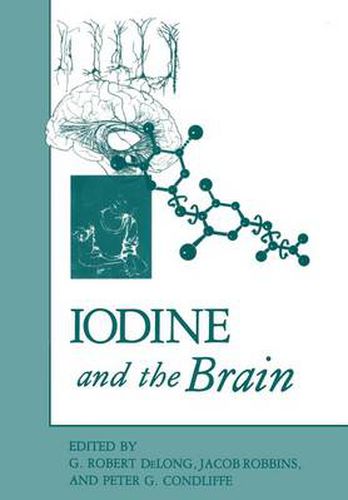Readings Newsletter
Become a Readings Member to make your shopping experience even easier.
Sign in or sign up for free!
You’re not far away from qualifying for FREE standard shipping within Australia
You’ve qualified for FREE standard shipping within Australia
The cart is loading…






This title is printed to order. This book may have been self-published. If so, we cannot guarantee the quality of the content. In the main most books will have gone through the editing process however some may not. We therefore suggest that you be aware of this before ordering this book. If in doubt check either the author or publisher’s details as we are unable to accept any returns unless they are faulty. Please contact us if you have any questions.
This volume contains the proceedings of a conference held at the National Institutes of Health in Bethesda on March 21-23. 1988. jointly sponsored by the International Council for Control of Iodine Deficiency Disorders (ICCIDD) and the Fogarty International Center of the National Institutes of Health. Several themes converged to make this meeting timely. The first is an increasing awareness of iodine deficiency disorders as a world-wide problem of public health and a preventable cause of mental deficiency. and as a subject of scientific effort. Increased interest in these problems owes a great deal to accessibility to remote and under developed areas of the world where iodine deficiency persists. As with any subject. greater scrutiny yields unexpected complexity and interest. It is true that provision of iodine. typically as iodized salt, is the necessary and sufficient preventative for iodine deficiency disorders. without including endemic cretinism. This provision is a governmental, economic and social problem. Apart from this, however, the scientific and medical problem of iodine deficiency and its effect on brain development and function is one of great interest and importance for developmental neurology and psychology. Even though the specific preventative agent is known, we do not totally understand the neurobiological questions raised.
$9.00 standard shipping within Australia
FREE standard shipping within Australia for orders over $100.00
Express & International shipping calculated at checkout
This title is printed to order. This book may have been self-published. If so, we cannot guarantee the quality of the content. In the main most books will have gone through the editing process however some may not. We therefore suggest that you be aware of this before ordering this book. If in doubt check either the author or publisher’s details as we are unable to accept any returns unless they are faulty. Please contact us if you have any questions.
This volume contains the proceedings of a conference held at the National Institutes of Health in Bethesda on March 21-23. 1988. jointly sponsored by the International Council for Control of Iodine Deficiency Disorders (ICCIDD) and the Fogarty International Center of the National Institutes of Health. Several themes converged to make this meeting timely. The first is an increasing awareness of iodine deficiency disorders as a world-wide problem of public health and a preventable cause of mental deficiency. and as a subject of scientific effort. Increased interest in these problems owes a great deal to accessibility to remote and under developed areas of the world where iodine deficiency persists. As with any subject. greater scrutiny yields unexpected complexity and interest. It is true that provision of iodine. typically as iodized salt, is the necessary and sufficient preventative for iodine deficiency disorders. without including endemic cretinism. This provision is a governmental, economic and social problem. Apart from this, however, the scientific and medical problem of iodine deficiency and its effect on brain development and function is one of great interest and importance for developmental neurology and psychology. Even though the specific preventative agent is known, we do not totally understand the neurobiological questions raised.